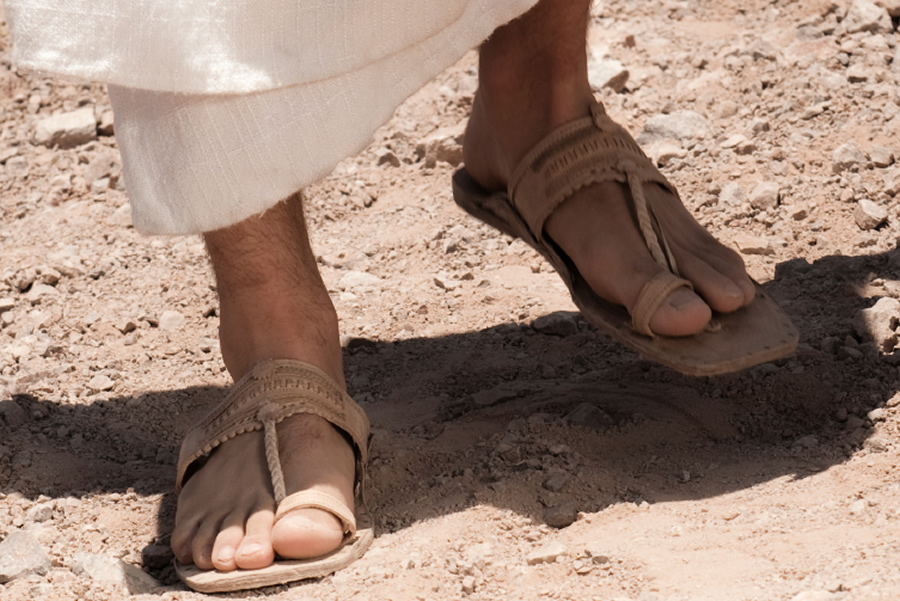Blog & Pastor Letters

Fifteenth Sunday in Ordinary Time – July 14, 2024
07-14-2024Weekly ReflectionDeacon Steven D. Greydanus“A plan for the fullness of times, to sum up all things in Christ, in heaven and on earth.” This amazing sentence in the second reading, from St. Paul’s letter to the Ephesians, is the climax to a magnificent passage that comes up in the Sunday Mass readings just once every three years — today being that day — though this passage is prayed by priests, deacons, and religious typically every week in the Divine Office, during Monday Evening Prayer! So it’s a key passage in the heart and mind of the Church, even though we hear it so seldom at Sunday Mass.
Here’s how that climactic sentence reads in the Divine Office translation: “a plan to be carried out in Christ, in the fullness of time, to bring all things into one in him, in the heavens and on earth.” If you were wondering what it means to “sum up all things in Christ,” this wording may be helpful: “to bring all things into one in him.” Other translations have “to unite all things in him” (RSV, ESV, cf. NIV), or “to gather together” (KJV, NKJV) or “gather up all things in him” (NRSV). And Paul is clear that “all things” means “the things in the heavens and the things on the earth” (ASV, ERV) — in other words, all of creation, the whole cosmos!
I’m not sure we think enough about this: what the plan of God in Christ means, not just for us, but for all of creation. We think a lot about what it means for human beings — reasonably enough, since Jesus came as one of us. He didn’t become a snow leopard, or a fir tree, or a galaxy — not because he couldn’t have done so if he wanted to, but because that wasn’t God’s plan! He became human, taking to himself human nature created in God’s own image, in order to reveal God to human beings and to redeem our fallen nature.
Yet in the act of becoming human, the Son of God took to himself not just a human soul, but also a human body: a body made of the same building blocks as all life on earth — cells, DNA, proteins, amino acids, and so forth — all formed of the same material stuff as the rest of the visible universe. You may have heard the idea that human beings are made of stardust: that the elements composing our bodies were forged in dying stars. If that’s true, it would follow that, in Jesus, stardust was united to God, died on the cross, and rose to immortal life . . . and that has implications for every dying star from the beginning of time to the heat death of the universe.
“In him we have redemption by his blood,” St. Paul writes. Why his blood? Why was Jesus’ flesh pierced and his blood shed on the cross? Why did he suffer not just in his spirit but in his body as well? To redeem our souls from sin, yes, but also to redeem our bodies from death. As we share in his death through Baptism, so we hope to share in his resurrection — and glorified bodies require glorified space! “I go to prepare a place for you,” Jesus told his disciples. Not just a place for our souls, a place for our bodies also — a real place. God didn’t create snow leopards and fir trees and galaxies for all of it to just go away! He means to bring all things into one in Christ, to unite in him all things in the heavens and on the earth.
Meanwhile this present world, like our mortal bodies, is passing away. The earth will die, as will the Sun and all the stars. Does that make this world less important? On the contrary, the Second Vatican Council teaches in Gaudium et Spes, the Pastoral Constitution on the Church in the Modern World:
The expectation of a new earth must not weaken but rather stimulate our concern for cultivating this one. For here grows the body of a new human family, a body which even now is able to give some kind of foreshadowing of the new age.
Hence, while earthly progress must be carefully distinguished from the growth of Christ’s kingdom, to the extent that the former can contribute to the better ordering of human society, it is of vital concern to the Kingdom of God.
In some way God begins to anticipate summing up things in Christ through how we live in this world, from how we treat one another, to how we vote, to how we care for snow leopards and fir trees and the rest of creation. We can’t bring about the kingdom of God on earth, but if we seek God’s glory in this world in everything that we do, then the kingdom is already at work in us.
BACK TO LIST